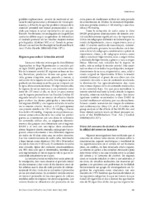Entre a cooperação e a competição: percursos da descentralização do setor saúde no Brasil
Date
2004Metadata
Show full item recordAbstract
Decentralization was one of several global phenomena that were experienced by societies and governments during the 1980s and 1990s. In Brazil, the creation of a Unified Health System (UHS) was part of such decentralization initiatives. However, implementing the UHS proved difficult because Brazil's central authorities encourage competition, rather than cooperation, between different levels of government. There were other challenges as well: the vastness of the country, the asymmetric distribution of human and financial resources, the uneven concentration of health services, and the fact that Brazilian municipalities vary greatly in size. However, several important things have already been accomplished as a result of decentralization. Basic health coverage has increased, as witnessed by the fact that during the 1990s there was an impressive rise in the number of municipalities with health clinics, in the availability of primary health care services per capita, and in the number of public hospitals. Still, several tasks lie ahead, and one of the most important is organizing and integrating regional networks to ensure universal, efficient, and cost-effective health care at all levels of health services provision in all Brazilian municipalities. (AU)
Translated title
From cooperation to competition: different roads to health sector decentralization in Brazil
URI
http://www.scielosp.org/scielo.php?script=sci_arttext&pid=S1020-49892004001000011&lng=pt&nrm=iso&tlng=eshttps://iris.paho.org/handle/10665.2/8185
Citation
Guimarães, Luisa,Giovanella, Lígia (2004) Entre a cooperação e a competição: percursos da descentralização do setor saúde no Brasil. Rev Panam Salud Publica;16(4) 283-288,out. 2004. Retrieved from http://www.scielosp.org/scielo.php?script=sci_arttext&pid=S1020-49892004001000011&lng=pt&nrm=iso&tlng=es
Collections

